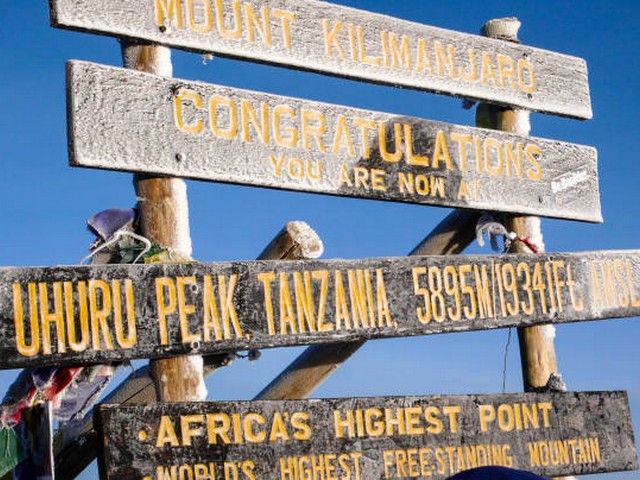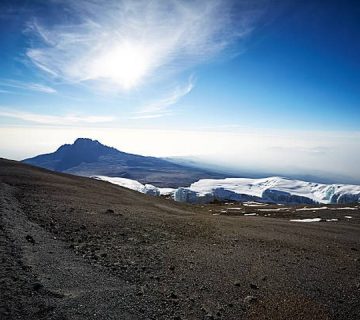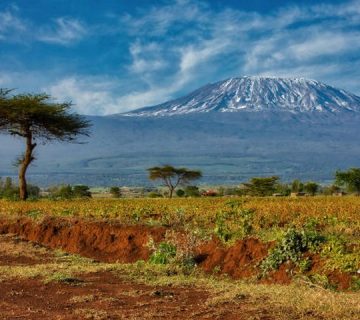Embracing Tanzanian Traditions and Customs for Kilimanjaro Trekkers: A Path to the Roof of Africa
Embarking on a trek to Mount Kilimanjaro is not just a physical journey; it’s a profound cultural immersion. At Kilimanjaro Centre for Trekking and Ecotourism (KCTE), we believe in blending adventure with cultural understanding. This enriching mix enhances your experience, making it more than just a climb—it becomes a journey of the soul. Today, let’s explore the rich Tanzanian traditions and customs that every Kilimanjaro trekker should embrace to truly connect with the heart of Tanzania.
The Soul of Tanzania: More than Just a Landscape
Tanzania’s cultural fabric is a vibrant tapestry woven from over 120 ethnic groups. Each community offers unique customs, languages, and traditions that contribute to the overall harmony of the country. Understanding these cultural elements can transform your trek into a more meaningful and respectful adventure.
Pre-Climb Preparations: Engaging with Local Customs
Welcoming Rituals
Before you even set foot on Kilimanjaro, engage with local welcoming rituals. Many Tanzanian tribes value hospitality and perform greetings that involve singing and sometimes a traditional dance. Participating in these rituals is not only a sign of respect but also an incredible way to start your journey on a positive note.
Local Cuisine
Indulging in local cuisine is a way to connect with Tanzanian culture. Before your climb, try dishes like Ugali (a staple maize porridge), or enjoy a hearty serving of Nyama Choma (grilled meat) with locals. These meals are not just food; they’re an introduction to the Tanzanian way of life.
Learning Basic Kiswahili Phrases
Kiswahili is the lingua franca in Tanzania. Learning simple greetings such as "Jambo" (Hello) or "Asante" (Thank you) can go a long way in showing respect and building rapport with your guides and porters.
On the Mountain: Customs to Respect During the Climb
Environmental Respect
Kilimanjaro is deeply revered by the local communities. Practicing ‘Leave No Trace’ principles by keeping the mountain clean and respecting wildlife is crucial. This respect for nature is deeply embedded in local customs and is vital for preserving Kilimanjaro’s beauty.
Porter Interaction
The porters are invaluable to your journey. They are not just helpers; they are custodians of Mount Kilimanjaro’s trails and have a deep connection with the land. Engaging with them thoughtfully, understanding their roles, and appreciating their hard work reflects deep respect for their tradition of mountain guiding.
The Summit: Celebrating Achievement in Tanzanian Style
Reaching the summit of Kilimanjaro is celebrated with songs and dances, a tradition among the climbing crews. Joining in this celebration is not just fun; it reflects a shared triumph and honors the communal spirit of your expedition.
After the Descent: Reflecting on the Journey
Participating in a Closing Ceremony
Some trekking groups participate in a closing ceremony, where climbers can express their gratitude to their guides and porters. This is also a time when climbers are often gifted with a locally made souvenir, like a Maasai blanket, symbolizing warmth and community.
Visiting Local Markets
After your descent, visiting local markets or cultural sites can provide deeper insights into the everyday lives of the Tanzanian people. These experiences allow trekkers to take home not just memories of the climb but also of the rich cultural landscape of Tanzania.
Responsible Trekking: Supporting Local Communities
Choosing to trek with Kilimanjaro Centre for Trekking and Ecotourism (KCTE) means you are supporting local communities directly. We ensure that a part of our earnings is invested back into local community projects, helping to sustain their traditions and improve livelihoods.
Why Trek with Kilimanjaro Centre for Trekking and Ecotourism?
At KCTE, we are more than just a trekking company. We are ambassadors of Tanzanian culture and committed guardians of Mount Kilimanjaro. Our guided treks are designed not only to challenge you physically but also to enrich you culturally, connecting you deeply with the land and its people. We invite you to experience Kilimanjaro with us, where every step comes with a story, every breath is a song, and every summit a celebration.
FAQs
Q: What should I wear during cultural ceremonies?
A: It’s best to wear modest clothing out of respect for local norms. Bright colors are often appreciated as they reflect celebration and joy.
Q: Can I participate in local traditions during the trek?
A: Absolutely! Participating in local traditions is encouraged. It’s a beautiful way to connect deeper with the community.
Q: Are there specific cultural taboos I should be aware of?
A: Yes, for instance, it’s considered disrespectful to point at people with your finger. Always use a flat open hand instead.
Q: How much of the trekking fee goes back to the local community?
A: At KCTE, a significant portion of trekking fees is allocated to community projects, including education and environmental conservation.
Embark on a journey with Kilimanjaro Centre for Trekking and Ecotourism, where every trek up the majestic Kilimanjaro transcends physical boundaries, inviting you to immerse in and celebrate the rich tapestry of Tanzanian traditions and customs. Ready to discover the soul of Tanzania from its highest peak? Book your climb today!




